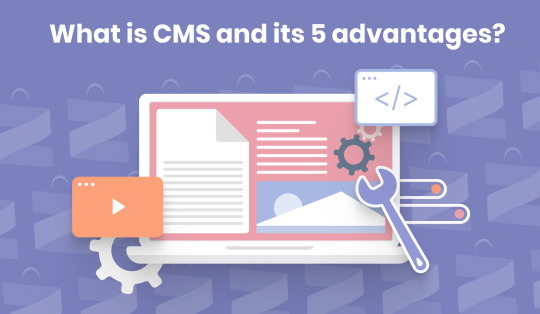#Cost Effectiveness
Text
New doctor changed the dosage of one of my drugs last month. Got it filled, figured I didn't need to notify the pharmacy that there was a change since they handled both prescriptions.
Apparently I was far too generous in my assumption of the intelligence of their computer system. If I go in and talk to somebody, they'll figure it out quickly. But the website won't let me say, "no".
There's somebody in charge that assumed that people will pick up the 'script to stop the nagging, and thus the store gets a bit more cash. Doing that 100,000 times adds up.
Call me obdurate. I'm here to prove that the losses in wasting the time of staff making automated calls, then having to restock the stuff when I won't pick it up are larger than any payment they might receive from insurance.
1 note
·
View note
Text

Mastering Engagement and Economy: The Winning Formula of High Open Rates and Low Costs in Bulk SMS Marketing
The dynamic synergy between cost-effective marketing and exceptional engagement can be achieved through bulk SMS strategy. You can explore how leveraging significantly higher open rates sets the stage for success, all while keeping costs in check with SMSGatewayCenter.
# # # #
#High Open Rates#Low Costs#Bulk SMS Marketing#Engagement#Cost Effectiveness#SMS Gateway Center#SMSGatewayCenter#Bulk SMS Campaign#SMS Gateway
2 notes
·
View notes
Text
i hate jk rowling but i love mikey way
#they have nothing to do with each other#i just wanted to say i hated jk rowling#but i also love mikey#cost effectiveness
3 notes
·
View notes
Text
Whether you're a seasoned marksman or a weekend range enthusiast, the quality of your ammunition can make all the difference. In the world of firearms, there's a gold standard - the highest quality bulk ammunition. If you're looking for rifle ammunition in Nevada, you have a variety of options to choose from.
0 notes
Text
Explore the revolutionary world of AI and its transformative impact on business operations! 🤖 Our latest blog post delves into the 9 key benefits of implementing AI in your business, from boosting efficiency and productivity to enhancing customer experiences and driving profitability. 🚀 Don't miss out on unlocking the full potential of your business. Dive in now! 🔗 https://vmarkets.global/?p=462
#ai tools#ai tools for business#ai productivity#business profits#cost effectiveness#costs#business productivity#business costs#profits#best ai tools#business tools
1 note
·
View note
Text
Why It's Beneficial to Pay a Retainer for Computer Technical Services, Even if You Don't Use Them Frequently
Have you ever hesitated to hire a computer technician on retainer because you don’t frequently experience technical problems? In this blog post, we’ll discuss the advantages of paying a retainer for computer tech services even if you don’t use them frequently. Buckle up because you’re about to learn a new technique for making sure technology experiences are hassle-free!
More Immediate Support,…
View On WordPress
0 notes
Text
Why It Is Best to Spend the Golden Years at Home
The golden years are a precious stage of life. When considering where to spend this chapter, many seniors find that remaining in the comfort and familiarity of their homes is the best choice. Aging at home offers numerous advantages that contribute to a fulfilling and comfortable lifestyle.
0 notes
Text
The Benefits of Virtual Document and Image Management
Virtual document and image management has revolutionized the way businesses handle their important files. With the help of cloud-based storage and advanced software solutions, organizations can now securely store, organize, and access their documents and images from anywhere in the world. In this article, we will discuss the significant benefits of virtual document and image…

View On WordPress
#cloud storage#collaboration#Cost Effectiveness#Data security#efficiency#image management#Productivity.#virtual document management
0 notes
Text
in Disco Elysium I was expecting there to be some kind of “addiction mechanic” that would add a long-term downside to taking drugs, and was surprised not only by the absence of any such mechanic but also that the benefits of drugs greatly outweighed the cost. anyways fast forward to the late game and I was downing three bottles of pyrholidon and smoking an entire pack of cigarettes before attempting any check, and it was only then I realized there was in fact an addiction mechanic
#disco elysium#pyrholidon#listen if smoking increased your iq at the cost of moving you an inch closer to having a heart attack you would be smoking that shit all day#especially if the health effects could be instantly reversed with some nasal spray#tw drugs#tw substance abuse
50K notes
·
View notes
Text
Why You Should Hire A Professional Landscape Design Company Atlanta
Are you looking for a professional landscape design company Atlanta to help with your landscape design project? If so, you may be wondering what type of company to hire. There are many landscape design companies out there, but not all of them are created equal.

What is Professional Landscape Design Company Atlanta?
Landscape design companies are businesses that specialize in the design of outdoor spaces. They can be hired by homeowners, businesses, or government agencies to create beautiful and functional landscapes that fit the needs of their clients. Most landscape design companies offer a variety of services to their clients, which include:
Landscaping design: This is the process of creating a plan for an outdoor space. The designer will take into account things such as the climate, terrain, and budget before starting work on a plan.
Installation: Once the client has approved the plan, the landscape design company will then install all the necessary features to make it come to life. This may include plants, trees, walkways, fences, etc.
Maintenance: Most landscape design companies also offer maintenance services once the installation is complete. This includes things like trimming bushes and mowing lawns, as well as winter snow removal.
Benefits of Hiring a landscape design Newnan GA
There are many benefits to hiring a professional landscape design company in Atlanta. Some of the key benefits include:
Professional Design: A professional landscape design company will help you create a plan for your yard that is both aesthetically pleasing and functional. They will take into account your needs and preferences, as well as the climate and terrain of your area.
Expert Installation: A professional designer will possess years of experience and knowledge in designing landscapes. He/she will know what plants work well together, how to create symmetry and balance in a garden, and how to utilize space effectively. Once the design is finalized, the professionals at the landscape design company will install it flawlessly. This means that everything will be properly matched and installed according to code requirements.
Long-Lasting Results: A professionally installed landscape design Newnan GA will last for many years without needing any additional maintenance or care. You can simply enjoy it and relax!
Cost Effectiveness: A good designer will be able to save you time and money by suggesting plants that are affordable yet still look great together. He/she will also be able to tell you which elements of your garden don't need improvement and which ones could use some extra attention.
Creativity: A professional designer can see potential in any space and turn it into something beautiful. He/she can help you realize your dream garden even if you don't have any idea where to start.
Conclusion
When it comes to landscape design Newnan GA, there are a lot of things to consider. You need to think about the colors you want to use, the plants you want to include, and the overall theme or feel of your garden. It can be difficult (and expensive) to do all this on your own, which is why many people choose to hire a professional landscaping company Atlanta.
#landscape design Newnan GA#atlanta landscapes#Cost Effectiveness#Long-Lasting Results#Professional Design
0 notes
Text
Starting a business can be a daunting task, especially when you don’t have any money to invest. However, it’s not impossible to start a successful business with no money, and many entrepreneurs have done it. Here’s how you can do it too:
Identify your niche: The first step is to determine what kind of business you want to start. Identify a need or problem that you can solve and research the…

View On WordPress
#bootsrapping#bsiness ideas#business planning#cost effectiveness#creative funding options#enterpreneurship#funding#market reaserch#small business#start up#starting a business with no money
0 notes
Text

we all know they were both bricked tf up in this scene
#boioioing sound effect used biblically#using my whorish powers to edit at what cost?#hannigram#hannigram edit#hannibal meme#hannibal edit#hannibal
685 notes
·
View notes
Text

Unbelievable how people want to be mean to him and he literally looks like this
#everyone is so mean to him in the show#LOOK AT HIM#look at his sad puppy eyes#need to protect him at all costs#house looks like this a lot too but somehow it has the opposite effect it makes me wanna bully him#bertie wooster#jeeves and wooster
411 notes
·
View notes
Photo

What is a CMS? 5 Advantages of using a Content Management System
CMS definition
A content management system (CMS) is a digital application that manages content, allowing you to create, format, edit, and publish content for presentation on a website. It helps you create and manage a website via a user-friendly interface. Multiple users can access the system.
Nearly every CMS comprises two parts – the front end and the back end.
There are different types of content management systems – Coupled CMS, SaaS CMS, Decoupled CMS and Headless CMS.
A CMS comprises two core parts: a content management application (CMA) and a content delivery application (CDA).
The CMA interface allows users to create and manage corporate or website content. The content delivery application (CDA) works in the back end, compiling any content changes and publishing them to the site for visitors to see. Using CMS digital application, you have the opportunity to create a website without coding skills.
5 advantages of using a CMS
Easy deployment
It is easy to deploy and allows multiple users to log in and use the admin panel at the same time. You can easily adjust the overall design, look, and layout. Full website management takes place in one common admin control panel, through which you can add products, new content, edit and delete it. You can also install plugins for additional features.
Accessibility for non-technically minded users
It’s a great opportunity for anyone, especially those with no coding skills, to create and manage website content, and apply unique templates. There is no need to spend a lot of money to have a custom website design anymore. These apps allow you to use many ready-made designs that are both responsive and stylish.
Extensive blog features
You can publish highly optimized content to drive a lot of website traffic and convert them into leads. The main advantage of using a CMS is that the necessary features for publishing a blog are available. You can specify content-related keywords, meta description, and content design (font, font size, color, etc) at any time directly from the admin panel.
Regular technological updates
Even though you avoid using any encryption, you don’t need to keep up with technological updates anyway. With CMS, these updates happen instantly, you just need to follow up to get the new system update.
Cost Effectiveness
By using a content management system, you can save both time and money. You can activate monthly packages to get the same features that you would get if you paid a web developer to make minor changes to the site. It’s really quite easy.
Summary
CMS is a great tool to create a website without the help of a developer and manage it yourself. Investing in this system will be effective in boosting business growth. It’s also great from an SEO perspective because it provides many tools to optimize content.
0 notes
Link
There exist various benefits for homeowners selling their ‘as is where is’ or uninsured properties to the We Buy Property Team. Some include;
Great Offers – a home reduced to nothing stresses owners to the point of selling at a throwaway price. Based on the company’s buying criteria, our team ensures that clients obtain the best possible offer using the property’s current condition and scope of work. We provide satisfactory settlements where you obtain more than your house’s worth. The uninsured houses also receive similar attention with minor alterations. Selling As Is Where Is Christchurch dose not mean that your property lost all its value. after all, even if the house is severally damaged and require costly repairs, there is still value in the land.
#webuyproperty#property#property market#As-is selling#Christchurch Property Market#cost effectiveness#EQC#Christchurch#New Zealand
0 notes
Text
Social Quitting

In “Social Quitting,” my latest Locus Magazine column, I advance a theory to explain the precipitous vibe shift in how many of us view the once-dominant social media platforms, Facebook and Twitter, and how it is that we have so quickly gone asking what we can do to get these services out of our lives to where we should go now that we’re all ready to leave them:
https://locusmag.com/2023/01/commentary-cory-doctorow-social-quitting/
The core of the argument revolves around surpluses — that is, the value that exists in the service. For a user, surpluses are things like “being able to converse with your friends” and “being able to plan activities with your friends.” For advertisers, surpluses are things like “being able to target ads based on the extraction and processing of private user data” and “being able to force users to look at ads before they can talk to one another.”
For the platforms, surpluses are things like, “Being able to force advertisers and business customers to monetize their offerings through the platform, blocking rivals like Onlyfans, Patreon, Netflix, Amazon, etc” and things like “Being able to charge more for ads” and “being able to clone your business customers’ products and then switch your users to the in-house version.”
Platforms control most of the surplus-allocating options. They can tune your feed so that it mostly consists of media and text from people you explicitly chose to follow, or so that it consists of ads, sponsored posts, or posts they think will “boost engagement” by sinking you into a dismal clickhole. They can made ads skippable or unskippable. They can block posts with links to rival sites to force their business customers to transact within their platform, so they can skim fat commissions every time money changes hands and so that they can glean market intelligence about which of their business customers’ products they should clone and displace.
But platforms can’t just allocate surpluses will-ye or nill-ye. No one would join a brand-new platform whose sales-pitch was, “No matter who you follow, we’ll show you other stuff; there will be lots of ads that you can’t skip; we will spy on you a lot.” Likewise, no one would sign up to advertise or sell services on a platform whose pitch was “Our ads are really expensive. Any business you transact has to go through us, and we’ll take all your profits in junk fees. This also lets us clone you and put you out of business.”
Instead, platforms have to carefully shift their surpluses around: first they have to lure in users, who will attract business customers, who will generate the fat cash surpluses that can be creamed off for the platforms’ investors. All of this has to be orchestrated to lock in each group, so that they won’t go elsewhere when the service is enshittified as it processes through its life-cycle.
This is where network effects and switching costs come into play. A service has “network effects” if it gets more valuable as users join it. You joined Twitter to talk to the people who were already using it, and then other people joined so they could talk to you.
“Switching costs” are what you have to give up when you leave a service: if a service is siloed — if it blocks interoperability with rivals — then quitting that service means giving up access to the people whom you left behind. This is the single most important difference between ActivityPub-based Fediverse services like Mastodon and the silos like Twitter and Facebook — you can quit a Fediverse server and set up somewhere else, and still maintain your follows and followers:
https://pluralistic.net/2022/12/23/semipermeable-membranes/#free-as-in-puppies
In the absence of interoperability, network effects impose their own switching cost: the “collective action problem” of deciding when to leave and where to go. If you depend on the people you follow and who follow you — for emotional support, for your livelihood, for community — then the extreme difficulty of convincing everyone to leave at the same time and go somewhere else means that you can be enticed into staying on a service that you no longer enjoy. The platforms can shift the surpluses away from you, provided that doing so makes you less miserable than abandoning your friends or fans or customers would. This is the Fiddler On the Roof problem: everyone stays put in the shtetl even though the cossacks ride through on the reg and beat the shit out of them, because they can’t all agree on where to go if they leave:
https://doctorow.medium.com/how-to-leave-dying-social-media-platforms-9fc550fe5abf
So the first stage of the platform lifecycle is luring in users by allocating lots of surplus to them — making the service fun and great and satisfying to use. Few or no ads, little or no overt data-collection, feeds that emphasize the people you want to hear from, not the people willing to pay to reach you.
This continues until the service attains a critical mass: once it becomes impossible to, say, enroll your kid in a little-league baseball team without having a Facebook account, then Facebook can start shifting its surpluses to advertisers and other business-users of the platform, who will pay Facebook to interpose themselves in your use of the platform. You’ll hate it, but you won’t leave. Junior loves little-league.
Facebook can enshittify its user experience because the users are now locked in, holding each other hostage. If Facebook can use the courts and technological countermeasures to block interoperable services, it can increase its users’ switching costs, producing more opportunities for lucrative enshittification without the risk of losing the users that make Facebook valuable to advertisers. That’s why Facebook pioneered so many legal tactics for criminalizing interoperability:
https://www.eff.org/cases/facebook-v-power-ventures
This is the second phase of the toxic platform life-cycle: luring in business customers by shifting surpluses from users to advertisers, sellers, etc. This is the moment when the platforms offer cheap and easy monetization, low transaction fees, few barriers to off-platform monetization, etc. This is when, for example, a news organization can tease an article on its website with an off-platform link, luring users to click through and see the ads it controls.
Because Facebook has locked in its users through mutual hostage-taking, it can pollute their feeds with lots of these posts to news organizations’ sites, bumping down the messages from its users’ friends, and that means that Facebook can selectively tune how much traffic it gives to different kinds of business customers. If Facebook wants to lure in sports sites, it can cram those sites’ posts into millions of users’ feeds and send floods of traffic to sports outlets.
Outlets that don’t participate in Facebook lose out, and so they join Facebook, start shoveling their content into it, hiring SEO Kremlinologists to help them figure out how to please The Algorithm, in hopes of gaining a permanent, durable source of readers (and thus revenue) for their site.
But ironically, once a critical mass of sports sites are on Facebook, Facebook no longer needs to prioritize sports sites in its users’ feeds. Now that the sports sites all believe that a Facebook presence is a competitive necessity, they will hold each other hostage there, egging each other on to put more things on Facebook, even as the traffic dwindles.
Once sports sites have taken each other hostage, Facebook can claw back the surplus it allocated to them and use it to rope in another sector — health sites, casual games, employment seekers, financial advisors, etc etc. Each group is ensnared by a similar dynamic to the one that locks in the users.
But there is a difference between users’ surpluses and business’s surpluses. A user’s surplus is attention, and there is no such thing as an “attention economy.” You can’t use attention to pay for data-centers, or executive bonuses, or to lobby Congress. Attention is not a currency in the same way that cryptos are not currency — it is not a store of value, nor a unit of exchange, nor or a unit of account.
Turning attention into money requires the same tactics as turning crypto into money — you have to lure in people who have real, actual money and convince them to swap it for attention. With crypto, this involved paying Larry David, Matt Damon, Spike Lee and LeBron James to lie about crypto’s future in order to rope in suckers who would swap their perfectly cromulent “fiat” money for unspendable crypto tokens.
With platforms, you need to bring in business customers who get paid in actual cash and convince them to give you that cash in exchange for ethereal, fast-evaporating, inconstant, unmeasurable “attention.” This works like any Ponzi scheme (that is, it works like cryptos): you can use your shareholders’ cash to pay short-term returns to business customers, losing a little money as a convincer that brings in more trade.
That’s what Facebook did when it sent enormous amounts of traffic to a select few news-sites that fell for the pivot to video fraud, in order to convince their competitors to borrow billions of dollars to finance Facebook’s bid to compete with Youtube:
https://doctorow.medium.com/metaverse-means-pivot-to-video-adbe09319038
This convincer strategy is found in every con. If you go to the county fair, you’ll see some poor bastard walking around all day with a giant teddy bear that he “won” by throwing three balls into a peach-basket. The carny who operated that midway game let him win the teddy precisely so that he would walk around all day, advertising the game, which is rigged so that no one else wins the giant teddy-bear:
https://boingboing.net/2006/08/27/rigged-carny-game.html
Social media platforms can allocate giant teddy-bears to business-customers, and it can also withdraw them at will. Careful allocations mean that the platform can rope in a critical mass of business customers and then begin the final phase of its life-cycle: allocating surpluses to its shareholders.
We know what this looks like.
Rigged ad-markets:
https://en.wikipedia.org/wiki/Jedi_Blue
Understaffed content moderation departments:
https://www.dw.com/en/twitters-sacking-of-content-moderators-will-backfire-experts-warn/a-63778330
Knock-off products:
https://techcrunch.com/2021/12/08/twitter-is-the-latest-platform-to-test-a-tiktok-copycat-feature/
Nuking “trust and safety”:
https://www.reuters.com/technology/twitter-dissolves-trust-safety-council-2022-12-13/
Hiding posts that have links to rival services:
https://www.makeuseof.com/content-types-facebook-hides-why/
Or blocking posts that link to rival services:
https://pluralistic.net/2022/12/19/better-failure/#let-my-tweeters-go
Or worse, terminating accounts for linking to rival services:
https://blog.joinmastodon.org/2022/12/twitter-suspends-mastodon-account-prevents-sharing-links/
That is, once a platform has its users locked in, and has its business customers locked in, it can enshittify its service to the point of near uselessness without losing either, allocating all the useful surplus in the business to its shareholders.
But this strategy has a problem: users and business customers don’t like to be locked in! They will constantly try to find ways to de-enshittify your service and/or leave for greener pastures. And being at war with your users and business customers means that your reputation continuously declines, because every time a user or business customer figures out a way to claw back some surplus, you have to visibly, obviously enshittify your service wrestle it back.
Every time a service makes headlines for blocking an ad-blocker, or increasing its transaction fees, or screwing over its users or business customers in some other way, it makes the case that the price you pay for using the service is not worth the value it delivers.
In other words, the platforms try to establish an equilibrium where they only leave business customers and users with the absolute bare minimum needed to keep them on the service, and extract the rest for their shareholders. But this is a very brittle equilibrium, because the prices that platforms impose on their users and business customers can change very quickly, even if the platforms don’t do anything differently.
Users and business customers can revalue the privacy costs, or the risks of staying on the platform based on exogenous factors. Privacy scandals and other ruptures can make the cost you’ve been paying for years seem higher than you realized and no longer worth it.
This problem isn’t unique to social media platforms, either. It’s endemic to end-stage capitalism, where companies can go on for years paying their workers just barely enough to survive (or even less, expecting them to get public assistance and/or a side-hustle), and those workers can tolerate it, and tolerate it, and tolerate it — until one day, they stop.
The Great Resignation, Quiet Quitting, the mass desertions from the gig economy — they all prove the Stein’s Law: “Anything that can’t go on forever will eventually stop.”
Same for long, brittle supply-chains, where all the surplus has been squeezed out: concentrating all the microchip production in China and Taiwan, all the medical saline in Puerto Rico, all the shipping into three cartels… This strategy works well, and can be perfectly tuned with mathematical models that cut right to the joint, and they work and they work.
Until they stop. Until covid. Or war. Or wildfires. Or floods. Or interest rate hikes. Or revolution. All this stuff works great until you wake up and discover that the delicate balance between paying for guard labor and paying for a fair society has tilted, and now there’s a mob building a guillotine outside the gates of your luxury compound.
This is the force underpinning collapse: “slow at first, then all at once.” A steady erosion of the failsafes, flensing all the slack out of the system, extracting all the surpluses until there’s nothing left in the reservoir, no reason to stay.
It’s what caused the near-collapse of Barnes and Noble, and while there are plenty of ways to describe James Daunt’s successful turnaround, the most general characterization is, “He has reallocated the company’s surpluses to workers, readers, writers and publishers”:
https://tedgioia.substack.com/p/what-can-we-learn-from-barnes-and
A system can never truly stabilize. This is why utopias are nonsense: even if you design the most perfect society in which everything works brilliantly, it will still have to cope with war and meteors and pandemics and other factors beyond your control. A system can’t just work well, it has to fail well.
This is why I object so strenuously to people who characterize my 2017 novel Walkaway as a “dystopian novel.” Yes, the protagonists are eking out survival amidst a climate emergency and a failing state, but they aren’t giving up, they’re building something new:
https://locusmag.com/2017/06/bruce-sterling-reviews-cory-doctorow/
“Dystopia” isn’t when things go wrong. Assuming nothing will go wrong doesn’t make you an optimist, it makes you an asshole. A dangerous asshole. Assuming nothing will go wrong is why they didn’t put enough lifeboats on the Titanic. Dystopia isn’t where things go wrong. Dystopia is when things go wrong, and nothing can be done about it.
Anything that can’t go on forever will eventually stop. The social media barons who reeled users and business customers into a mutual hostage-taking were confident that their self-licking ice-cream cone — in which we all continued to energetically produce surpluses for them to harvest, because we couldn’t afford to leave — would last forever.
They were wrong. The important thing about the Fediverse isn’t that it’s noncommercial or decentralized — it’s that its design impedes surplus harvesting. The Fediverse is designed to keep switching costs as low as possible, by enshrining the Right Of Exit into the technical architecture of the system. The ability to leave a service without paying a price is the best defense we have against the scourge of enshittification.
(Thanks to Tim Harford for inspiring this column via an offhand remark in his kitchen a couple months ago!)
[Image ID: The Phillip Medhurst Picture Torah 397. The Israelites collect manna. Exodus cap 16 v 14. Luyken and son.]
#pluralistic#social media#post-twitter#post-facebook#switching costs#network effects#web theory#locus magazine#exodus#decentralization
3K notes
·
View notes